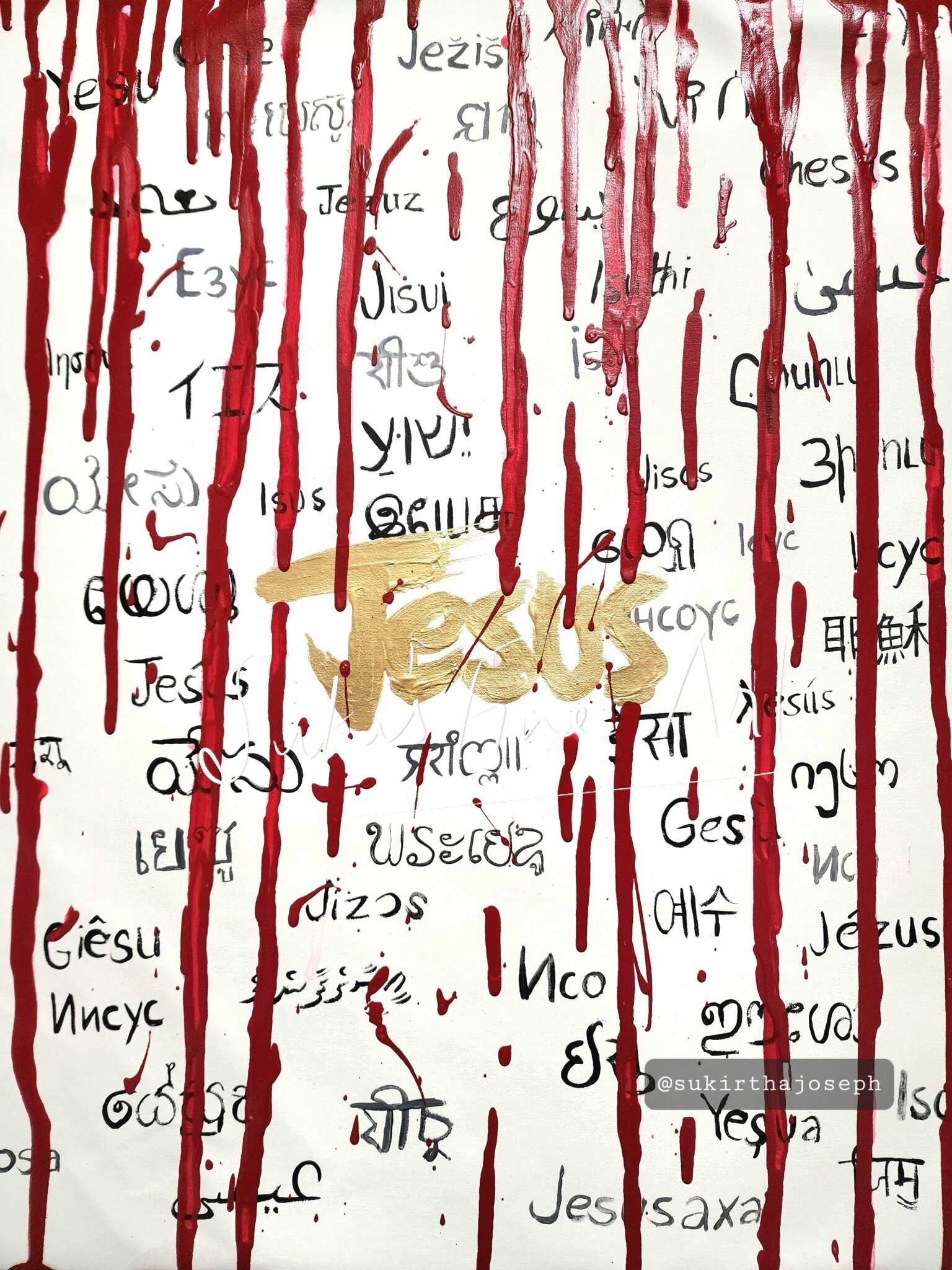
This painting has the name of Jesus written in 61 languages. If you see a mistake in your language, please reach out. If I have missed adding your language, please let me know, and I am happy to add it in. Now, a bit about the painting – read on if you are curious about why I painted this.
You might not necessarily believe in the Biblical account of how languages came to be but stick with me to understand the story behind this painting. In Genesis 11, we see mankind desiring to be like God (once again) and building a tower to test their limits. God, unpleased with their pride, brings confusion by introducing several languages. With several languages, they could no longer communicate, and the tower was never finished. Today, we still see the repercussions of this confusion. According to Google (I used Google a lot for this painting), more than 7100 languages exist today, and to this day, we can not communicate seamlessly. And to make it worse, we somehow believe our language is superior to the next.
The story of Babel is a stark reminder of the broken world (because of sin) and how God intervened at various times to temporarily prevent further damage. But the confusion at Babel didn’t make the world better, or did it? The diversity in languages both adds beauty and confusion to the world. Doesn’t it? Are the various languages God’s angry response to human pride?
The answer lies in the various passages in the Bible, but I would like to point to just two instances. After Jesus ascended after His resurrection, the Holy Spirit (Spirit of God) came upon the disciples and filled them with the ability to speak in tongues (Tongues? What does that mean?). The disciples began to speak in languages that they were not used to speaking in. The guests visiting from other countries were able to understand these new languages that the disciples were now speaking in. The foreign guests could now understand what the disciples were speaking (for a brief time), and the good news of Jesus was now understandable to these foreigners. God was unifying these people through the use of different languages.
Fast forward to the final book in the Bible, and we see a beautiful picture of what is to come – God’s grand finale. We see that before God’s throne, in the new heaven and new earth, is a huge gathering of people – people from every nation, tribe and language. God did not eliminate all these languages and races and make them into one. Instead, He unifies them through His sacrificial love.
In God’s Kingdom, even the things that divide us can be redeemed to unite us. With God, all things are possible. And on that note, may we find reasons to unite instead of divide, for Jesus died for each and every nation, tribe and language. Every drop of red paint on my painting represents the shedding of His blood for the people of every nation, tribe and language. His precious blood doesn’t divide. It unites in Jesus’ name! Can we unite, too?
Aren’t all these who are speaking Galileans? Then how is it that each of us hears them in our native language? Acts 2:7
After this I looked, and behold, a great multitude that no one could number, from every nation, from all tribes and peoples and languages, standing before the throne and before the Lamb, clothed in white robes, with palm branches in their hands. Revelation 7:9
